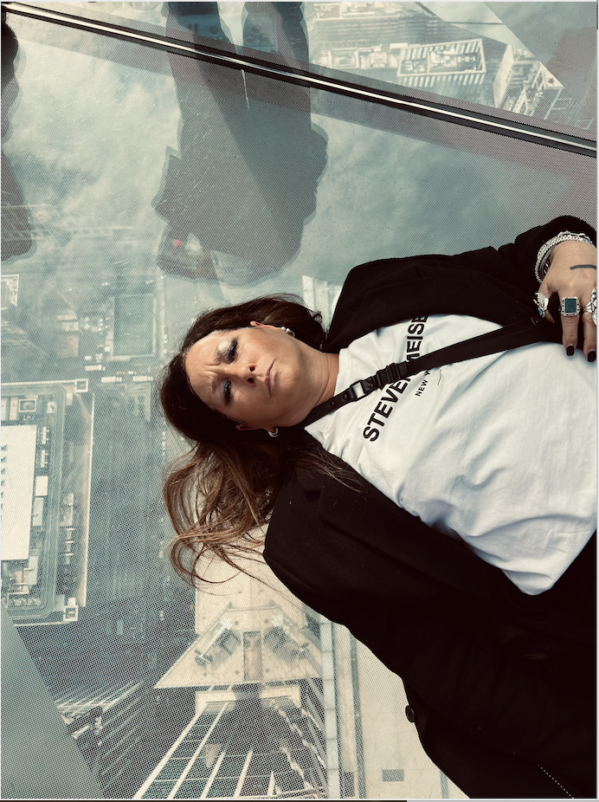
Defining Times
A column about what remains on my radar and keeps me busy
The year 2023 will go down in history as a time of immense and seemingly uncontrollable societal challenges. Europe is threatened by an imminent nuclear war, while America teeters on the edge of a civil war, and Asia is plagued by two large-scale conflicts. Additionally, we are facing a recession, an energy crisis, the aftermath of a recent pandemic that continues to demand our attention (such as the mental health crisis, whose real consequences we are witnessing today), and stagflation, resulting in a cost-of-living crisis. Global warming is causing floods, fires, and extreme weather conditions that jeopardize humanity, despite efforts at climate summits and somber predictions from leading scientists. Some label this period as the most devastating since World War II. For those who want to get a glimpse, streaming the satirical movie ‘Don’t Look Up‘ with Leonardo DiCaprio and Jennifer Lawrence provides a clear picture of what lies ahead.
Profound scars from the conflicts and mental health issues, especially among the youngest generations, are anticipated. The lingering question is: how do we, as individuals, cope with this, and how do businesses, brands, and governments proactively address these challenges?
The danger of paralysis, resignation, and retreating into one’s own bubble is imminent. However, as we’ve long known, the desire for innovation is rekindled during such complex poly-crises. We strive to identify and capitalize on new market and business opportunities.
Slowly but surely, we are navigating towards a new society, one that we still need to build with the ‘coalition of the willing,’ as my colleague and friend Stefaan Van Dist aptly puts it. It will take time. The challenges are numerous and not easy. We encounter unwillingness, stubbornness, ignorance, and deliberate misinformation. Often, entire groups stand in opposition, each clinging to their own truth and convinced of their correctness.
Indeed, it will take some time before we achieve a breakthrough and collectively recognize that the current path is unsustainable, and adaptation is the only way to survive. This is not a new concept; Darwin once taught us this.
Adaptation will be a necessity for every company, without exception. I’ve been emphasizing this for years with my clients: sustainability is no longer just a moral issue; in 2024, it will become a business imperative. There is also a growing trend to embrace the term ‘regeneration’ instead of the somewhat worn-out but essential term ‘sustainability.’ Regeneration inherently encompasses the positivity that is absolutely vital as the climate clock ticks louder.
I want to conclude this introductory column with a thought and a call that I received from my Dutch colleague and friend, Jeanneke Scholtens. She urged us to give more attention to the future in executive or management team meetings. Yes, those meetings where it usually revolves around short-term business matters: annual figures, investments, achieved goals, staff turnover, marketing expenses… All aspects where you can exert direct influence and where you typically look no more than a year ahead. Long-term vision often gets pushed to the bottom of the agenda due to other pressing issues. I echo her call to add the future to management agendas. Incorporate a ‘MT Future’ session every few weeks to discuss the company’s multi-year vision and its impact on the future of the upcoming generations. This proactive approach aids in making clear decisions today and navigating a well-founded course.
Examine the future from diverse perspectives, adopt a long-term vision, and ensure that all stakeholders are on board, including those without a direct voice, such as nature. At the recent ‘Love Tomorrow Campus‘ conference organized by Tomorrowland, the young Dutch lawyer Jessica Den Outer, specializing in the rights of nature (and legally advocating for them), addressed the audience. She referred to intriguing cases, including that of the Whanganui River in New Zealand. In 2017, it became the world’s first river to be recognized as a legal entity – “the river is itself” – after decades of struggle by the Maori tribe. Since then, the river can sue other parties if they harm the well-being of the river. A noteworthy concept that undoubtedly will be embraced in the society of the future.
Because that’s what it’s all about: generating new and different ideas based on the numerous challenges we face, by looking at things from a different perspective. This will result in solutions that are different from what we are accustomed to. The current chaos, uncertainty, doubt, and polarization create a sense of urgency that we can no longer ignore.
I help brands and businesses to cope with these possible futures, and together with your teams we will set goals, boundaries and a clear ambition towards the future. A bold strategy based on your strengths and the surrounding realities. Contact me if you want to know more. Let’s keep in touch.
Kate Stockman